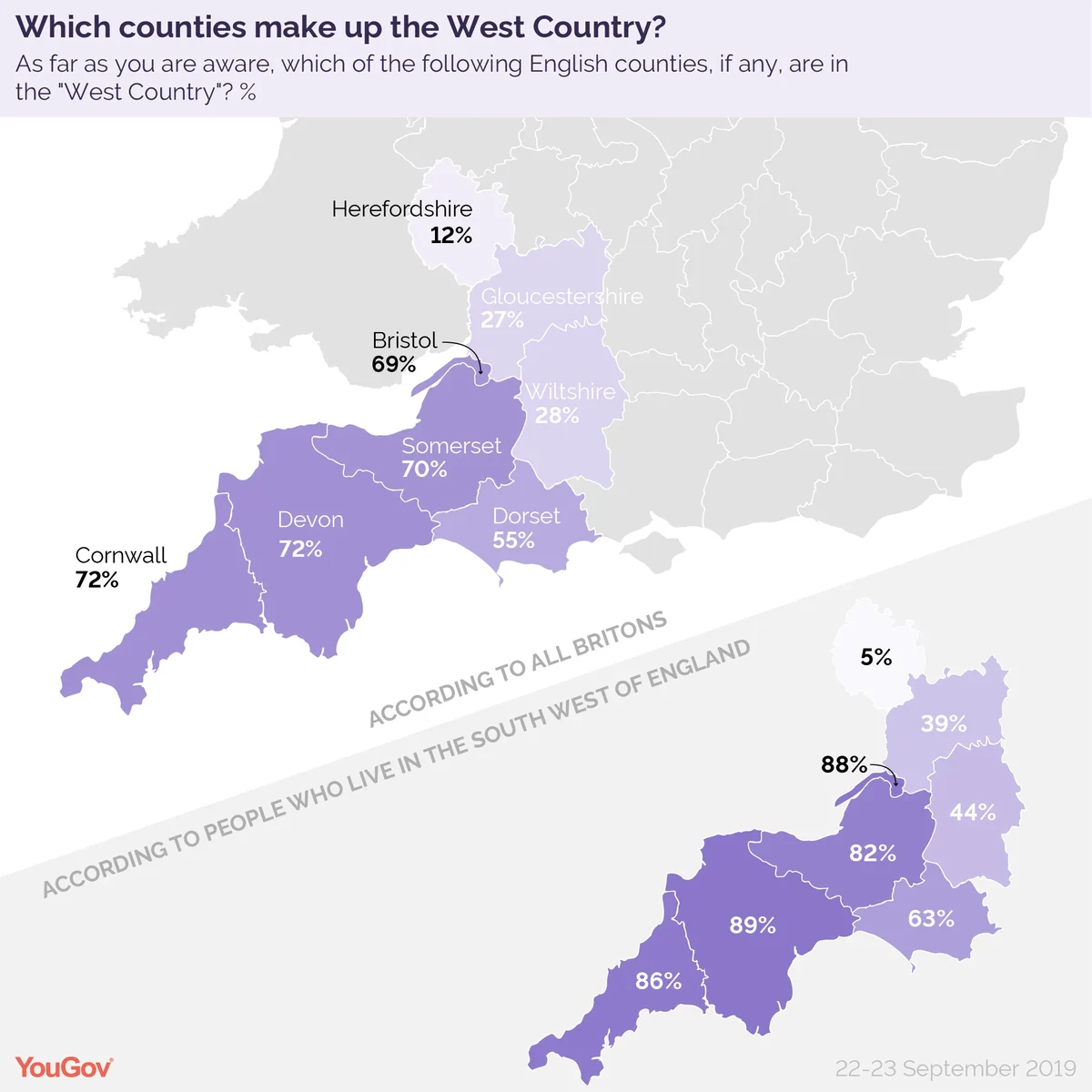People who live in the South West are more likely to expand the West Country’s borders
Mention the West Country to someone and it’s likely to evoke images of rolling farmland and dramatic coastline. But where do the borders actually begin? As with so many historical terms, the definition isn’t precise.
YouGov RealTime asked the general public which counties should be included and 72% said Cornwall and Devon, 70% said Somerset and 69% said Bristol. People are less sure about Dorset, but a majority of 55% still consider it to be part of the West Country.
More expansive definitions of the West Country have included Wiltshire, Gloucester and Herefordshire, but the public don’t tend to agree.
Just 28% of people count Wiltshire as being in the West Country, as do only 27% for Gloucestershire. A mere 12% included Herefordshire, a scant margin higher than the 9% who include Worcestershire – a county that is resolutely not in the West Country and was only included as a basis for comparison.
Inhabitants of the South West of England, an area often seen as synonymous with the West Country, are more likely to hold a more inclusive definition of the term.
Aside from the fact that they are far more likely to include Cornwall, Devon, Somerset and Bristol within the West Country’s borders (all between 82% and 89%), they are also more likely than Britons as a whole to include Dorset (63%), Wiltshire (44%) and Gloucestershire (39%).
In the case of Wiltshire, opinion among South Westerners is split between the 44% who say it is part of the West Country and the 42% who say it is not. Those 39% who include Gloucestershire, on the other hand, continue to be outvoted by the 50% who say it’s not part of the region.
When it comes to Herefordshire, South Westerners are less likely than the public as a whole to say the county falls within the borders of the West Country, at just 5%.
Photo: Getty

















